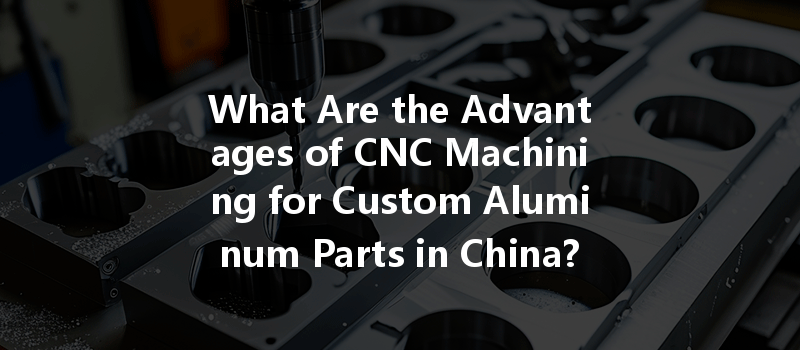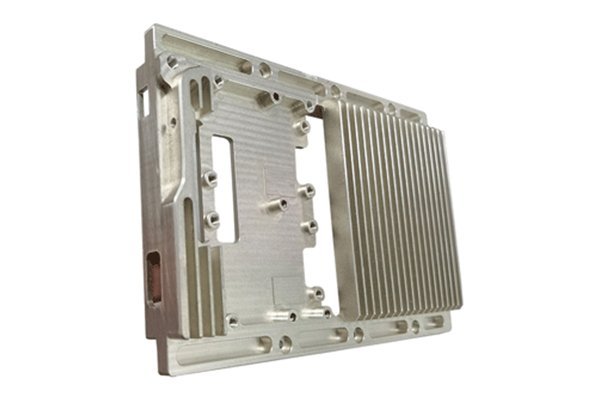Did you know that China produces more than half of the world’s aluminum output? This incredible statistic demonstrates not just the sheer scale of China’s manufacturing capabilities but also its mastery of advanced machining techniques. As industries continue to demand lightweight, durable components, custom aluminum parts have become increasingly vital in sectors ranging from automotive to aerospace. With the rising popularity of CNC (Computer Numerical Control) machining, what advantages does this technology offer for manufacturing custom aluminum parts in China? In this blog, we will explore the multifaceted benefits of CNC machining, its processes, and why it has emerged as a game-changer for industries seeking precision and efficiency.
Understanding CNC Machining
CNC machining involves the use of computerized systems to control machine tools that manipulate materials into desired shapes. From lathes to milling machines, CNC technology automates manufacturing processes with precision, reducing human error and increasing production speed.
The Basics of CNC Machining for Aluminum Parts
Advantages of CNC Machining for Custom Aluminum Parts
One of the most significant advantages of CNC machining is its ability to produce highly precise components. CNC machines operate with extreme accuracy, often to a tolerance of just a few micrometers. This level of precision is critical in industries like aerospace, automotive, and medical, where even the slightest deviation can lead to failures or safety issues.
CNC machining allows for complex custom part designs that would be impossible or very costly to produce using traditional manufacturing methods. The high level of flexibility enables manufacturers to make rapid design changes without significant downtime, thus adapting quickly to market needs.
While the initial setup costs for CNC machining can be higher, the long-term savings are considerable, especially for high-volume orders. The automation of the process reduces labor costs and increases productivity, allowing manufacturers to deliver custom parts at a lower price point, thus enhancing competitiveness.
With CNC machining, every component produced is consistent in quality and meets pre-defined specifications. Advanced CNC machines continually monitor and adjust operations based on feedback, guaranteeing that every piece is produced to the same high standard.
CNC machining optimizes material usage, reducing waste significantly compared to traditional machining methods. This not only lowers material costs but also aligns with sustainable manufacturing practices, a concern that is becoming increasingly important to consumers.
CNC machining can handle intricate geometries and complex designs that traditional machining methods cannot achieve. With the ability to conduct multi-axis machining, manufacturers can create components with multiple features in a single setup, reducing production time and enhancing efficiency.

CNC technology enables rapid prototyping, allowing manufacturers to produce functional prototypes in a fraction of the time. This expedited process facilitates iterative testing, enabling teams to refine their designs based on real-world performance data more quickly.
Another inherent advantage of CNC machining is its scalable nature. Whether producing a single custom piece or thousands of units, CNC systems can easily adjust to meet changing production demands without major reconfigurations.
Common Applications of CNC Machining for Custom Aluminum Parts
In the automotive sector, manufacturers utilize CNC machining to produce lightweight parts such as brackets, housings, and frames. These components not only contribute to fuel efficiency but also enhance overall vehicle performance.
CNC machined aluminum parts are critical in the aerospace industry, where weight-saving measures are paramount. From structural components to intricate fittings, these custom parts play a vital role in aircraft design and functionality.
The medical field demands high precision in products such as surgical tools and medical devices. CNC machining’s ability to produce high-tolerance parts makes it invaluable in ensuring patient safety and performance reliability.
CNC machining is also prevalent in the production of custom housings and enclosures for electronics. The lightweight and heat dissipative properties of aluminum make it an ideal choice for keeping sensitive electronic components cool while providing ample protection.
Choosing a CNC Machining Partner in China
When selecting a CNC machining partner in China, several factors should be considered:
In conclusion, CNC machining for custom aluminum parts in China represents a powerful convergence of technology, precision, and efficiency that is reshaping manufacturing across numerous industries. With advantages such as scalability, design flexibility, and cost-effectiveness, CNC machining is poised to meet the growing demand for high-quality custom parts in today’s fast-paced market.
As you consider CNC machining for your aluminum parts, remember the significant advantages it brings, particularly regarding precision manufacturing, rapid prototyping, and waste reduction. The potential of CNC machining is a phenomenon that businesses worldwide cannot afford to overlook. A deep understanding of these benefits and choosing the right CNC machining partner can help you capitalize on the myriad opportunities this technology presents.
Now, it’s time to ponder how CNC machining can fit into your manufacturing strategy and to explore potential partnerships that can elevate your product offerings. With an ever-evolving landscape of possibilities, understanding these advantages can drive your business toward innovative solutions and enhanced performance in your respective industry.






